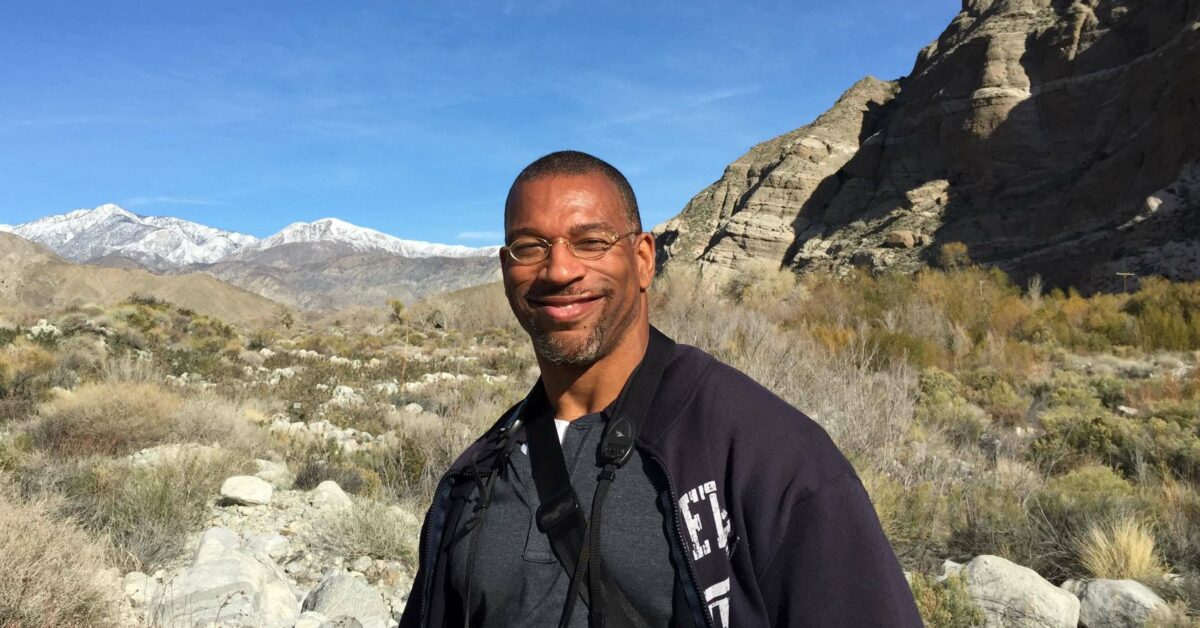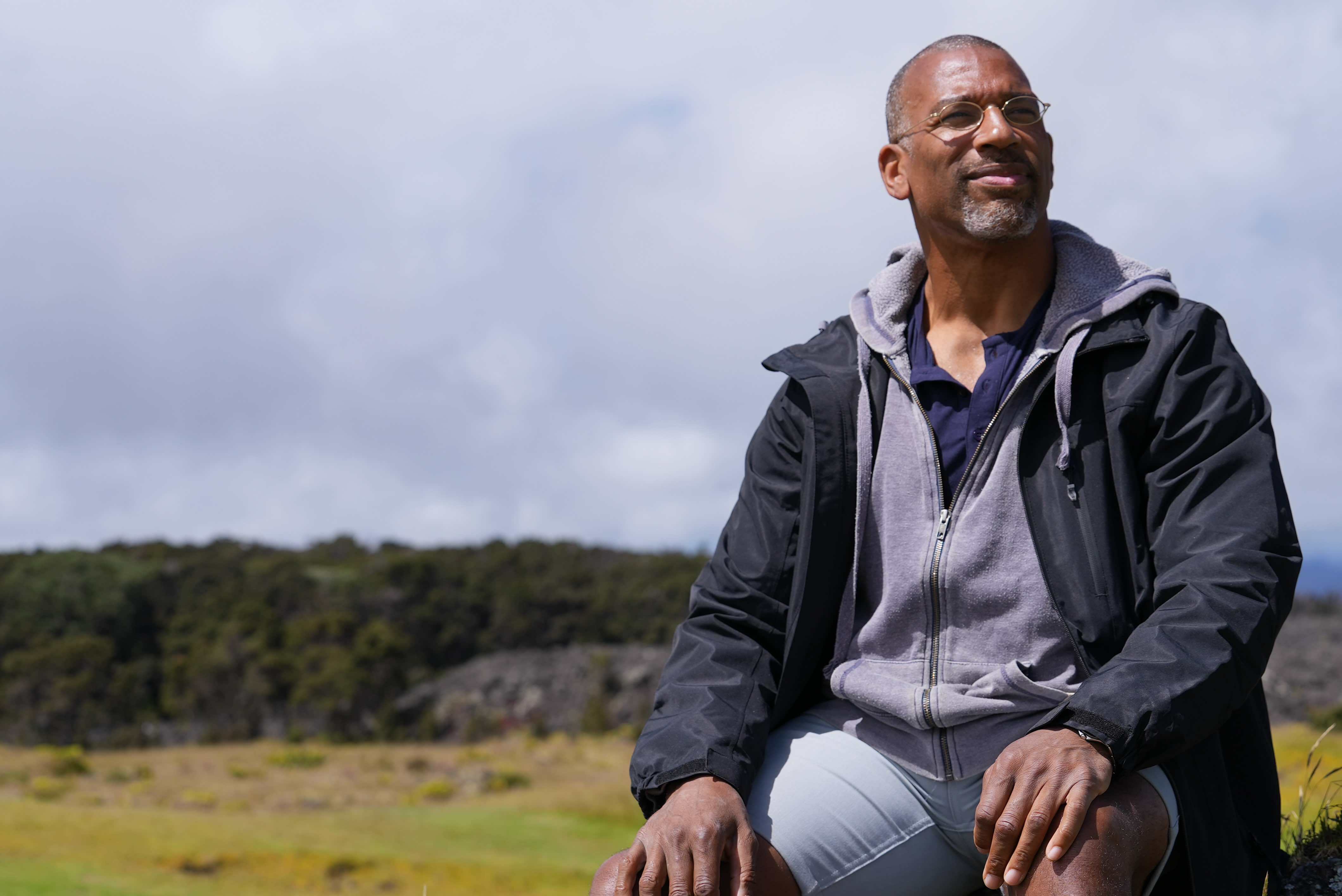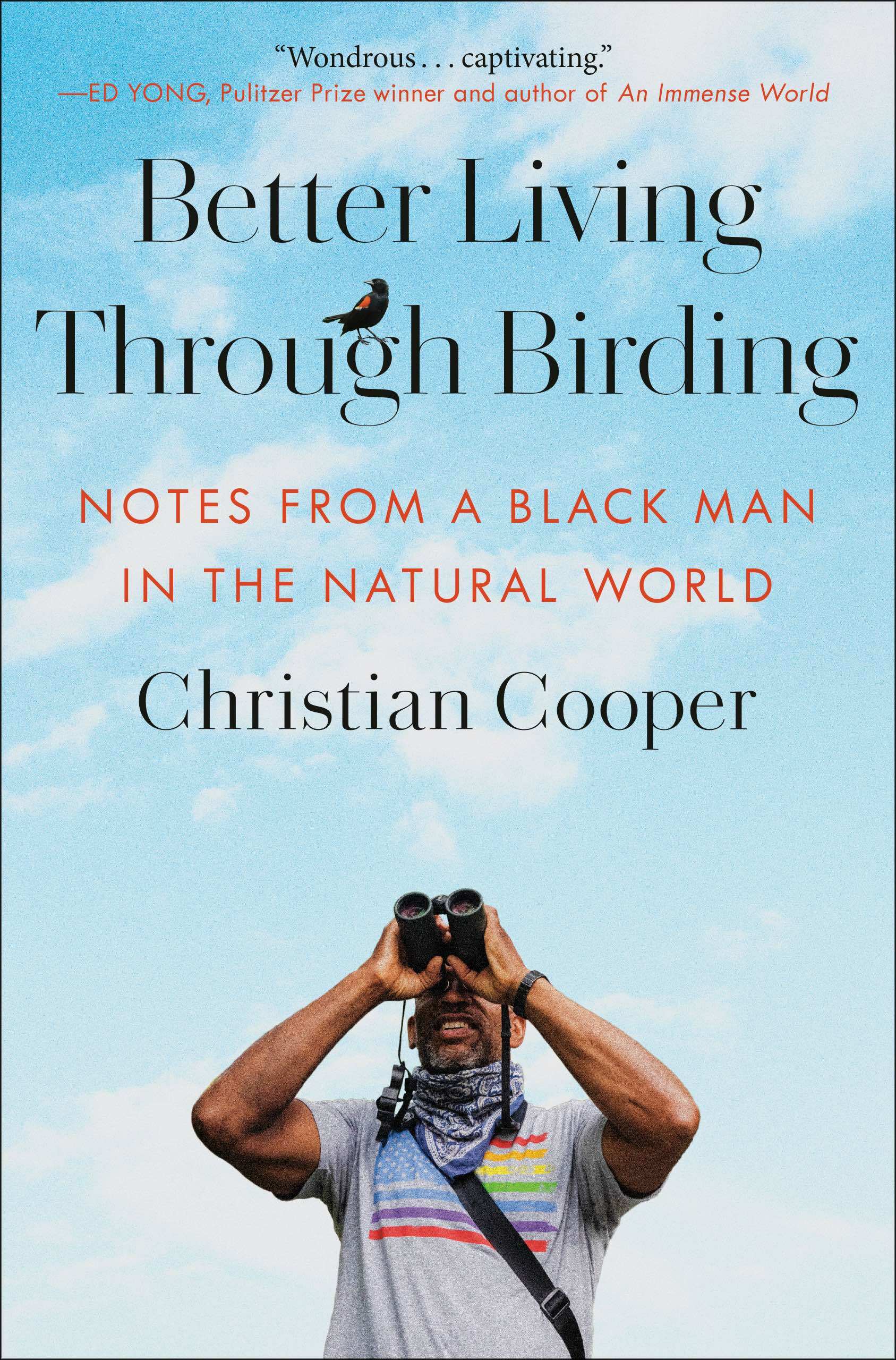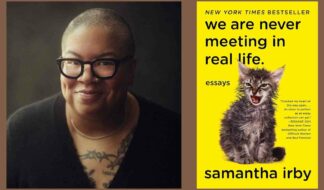How Christian Cooper Spread His Wings After Racial Discrimination From a ‘Karen’ Put Him in the Spotlight
The cliff swallows aren’t the only ones with a story to tell

The red-winged blackbird has officially returned to southern Michigan — its trill can be heard starting in mid-to-late February and into mid-March, a harbinger of the transition from winter to spring. You might spot one, identifiable by its jet black color with a red and yellow patch on its upper wing, calling out from a tree or a brushy hayfield. And if you’re in New York, you might spot Christian Cooper looking at one through his binoculars in a park in the city, as he’s famously done before.
Cooper had established a public persona before 2020 as the first openly gay writer and editor of Marvel Comics, but it was an experience in New York City’s Central Park that year that catapulted him to household name status and a national symbol of Black resilience just ahead of a major ramp-up of the Black Lives Matter movement. It was just another day spent on his favorite hobby, birdwatching, until a white woman named Amy Cooper (same last name, no relation) called 911 — frantic with her false, racially charged accusations, as caught on his cellphone in viral documentation — after he asked if she could leash her dog.
That same week a white Minneapolis police officer killed George Floyd, a Black man, igniting a civil rights movement that included numerous marches through the streets of the U.S. In “Better Living Through Birding: Notes from a Black Man in the Natural World,” published in 2023, Cooper shares his own experiences as a Black queer person in the outdoors, reflecting on what he tells me he has coined, as shorthand, “the incident.”
“I try to set the incident in the context of the racial environment in the country, and in particular in Central Park, because there's a whole racial history to Central Park,” he says. “But more generally, I try to put the incident in the context of my life, because that was like three minutes, and there’s a whole lot of other stuff that happened before, and that happened after. So I'm very glad that I get to tell a fuller version of not only the incident, but to put it in context and tell a fuller version of me, which is what a memoir is.”

His story continues to evolve beyond those brief but defining few minutes — a story that, in some ways, began much earlier, too, as Cooper began watching birds when he was 10, a cherished pastime he shared with his father. Some 50 years later, and after the memoir detailed much of his personal history, Cooper’s own show, “Extraordinary Birder with Christian Cooper,” launched on Nat Geo and Disney+.
During an episode devoted to Alabama, where woodpeckers, eagles, shrikes and kites soar above one of the nation’s most bird-friendly states, Cooper rediscovered what made that place so special to him when he first visited and then recreated it for this particular installment.
“It's still about birds because it's a birding show, but it also ends up layered over family history and civil rights history,” he says. “We're in Selma and I walk across the Edmund Pettus Bridge — both of my parents are gone now and they both were very active in civil rights back in the day, but they never got to see [it]. I don't think either of them ever went to Alabama and saw the Edmund Pettus Bridge. So that was really moving.”
Walking the bridge, Cooper couldn’t help but think about the cliff swallows as historical observers, as he saw them nested underneath the very National Historic Landmark where “Bloody Sunday” occurred on March 7, 1965, when about 600 civil rights marchers headed east out of Selma on U.S. Route 80. They only reached Edmund Pettus Bridge six blocks away, where lawmen attacked them and drove them back into Selma. Those cliff swallows, he told me, “probably had been nesting underneath that bridge for decades, and were probably there when everything that happened went down on that bridge.”
While contemplating what the birds might see as much as what he sees in the birds, he thought of three people: his dad, mom and grandma. “It was like they were walking with me, it really was,” he says.
As the fight for human rights and social justice continues, remarkably even in 2024, 61-year-old Cooper, who survived the devastating AIDS epidemic and Ronald Reagen’s dismissiveness toward it, says he’s struck by what it feels like to be a queer person in the country right now, where anti-queer rhetoric is unrelenting.
“It’s not like back when I was a kid in the ’70s, when you just didn't see gay people in public; that's not true anymore,” he says. “And yet there's still this backlash coming at us, and that's really disturbing. It means they know us and they still hate us, and that's a bitter pill to swallow. And what does it mean, and how do we fight back against it?”
One way Cooper can counter the current wave of homophobia and racism, he realizes, is to speak out about these injustices that marginalized and oppressed communities are collectively up against — ones that, for him, have obviously and very publicly hit close to home. With his show and memoir, he’s cognizant of reaching more people and new audiences about three of his passions: “justice for Black people, equality for queer people and wild birds for all people.”
“What I hope is that by telling this very personal story, it makes it easier for people to get into the other aspects of the story, whether it's the birding, or what it's like to be gay and in the closet, and then get out of that closet, what that experience was like, or what it's like being Black in this society that is still rife with obvious and not-so-obvious racial bias.”

When I spoke to Cooper, he acknowledged those who came before him and tirelessly built the platform he now speaks on, reflecting with humility on connections he didn’t explicitly make during our conversation but were ever-present in the undertones in discussing his own unique experiences as a Black queer man in an America rife with racial and LGBTQ+ discrimination. Even if he wasn’t on the receiving end of a white woman’s racially charged episode, and even if another Trump presidency wasn’t looming larger than we’d like it to, what the Edmund Pettus Bridge represents wouldn’t likely be too far from his mind.
He’s in the spotlight, he says, due to the activists and freedom fighters who set this stage for him — both during the 1960s civil rights era and more recently after George Floyd’s murder. “It’s not all because of me,” he says. “It’s got to do with the current environment and the people who have come before me and a whole lot of other things that are creating the updraft that’s letting me get some lift.”
“As long as I've got the spotlight, I'm going to try and turn it on some other people and other things that need to have that spotlight, because it's not going to last forever,” he adds, before nearly making his own red-winged blackbird migration analogy that materializes subconsciously — a comment that seems to express just how much nature connects to his own thoughts about being who he is in this current moment.
“It's going to go, it's going to move; that's the nature of the world. The spotlight moves on. So while I got it, while people are shoving cameras and microphones in my face, I'm going to use it to say what is important and what needs to be said.”










